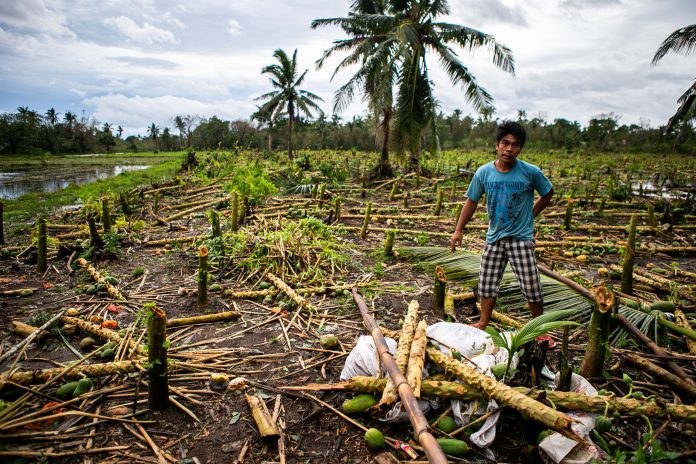Greenpeace renewed its call for Philippine communities to adopt and implement disaster risk reduction strategies centered on climate action in the wake of typhoon “Maring” (Kompasu) this week.
The group made the call on the occasion of International Day for Disaster Risk Reduction (DRR) on October 13, and days after the United Nations’ Human Rights Council passed a resolution declaring the right to a safe, clean, healthy, and sustainable environment as a human right.
“The onslaught of typhoon Maring, although expected, still resulted in loss of lives and livelihoods,” said Greenpeace Philippines campaigner Virginia Benosa-Llorin in a statement.
“This tells us there is an urgent need to ramp up DRR strategies particularly in this era of climate crisis,” said Benosa-Llorin, adding that these strategies must include “upholding people’s right to a healthy environment as a way to mitigate disaster risks and enabling small communities to cope with climate impacts.”
“A long-term coherent plan will also secure a safe, clean, healthy, and sustainable environment for the current and future generations,” she said.
At least 14 parishes in the Archdiocese of Tuguegarao have been affected by the impact of “Maring” that hit the northern Philippines this week.
Father Andy Semana, social action director of the archdiocese, told Radio Veritas 846 that although Cagayan River did not overflow it might rise when water from the mountains comes down later this week.
Already, the rains caused floods in several parts of Cagayan Valley, the Ilocos Region, and the Cordillera Administrative Region.
Benosa-Llorin said “Maring” heavily affected the agriculture sector and communities in flood- and landslide-prone areas in northern Luzon.
Greenpeace has long been calling on the government to chart out a coherent strategy from local to national levels to address the climate crisis.
The pro-environment group said the strategy should mainstream climate action in all policies, plans, and projects, including in city planning, infrastructure projects, permits for large-scale industrial activities, and fisheries and agricultural policies.
Greenpeace is also calling on the government to strengthen efforts to curb greenhouse gas emissions by cancelling all coal projects in the pipeline and speeding up the shift to renewable energy, call on developed countries to raise their nationally determined contribution targets, and hold fossil fuel companies accountable for their responsibility on the climate crisis.
Last year, Greenpeace called for the declaration of a national climate emergency amid the worsening loss of life, livelihood, and property during typhoons.
The Philippines’ House of Representatives has adopted resolutions declaring a climate emergency, which was seen as a starting point to put climate action and climate justice at the center of governance.









